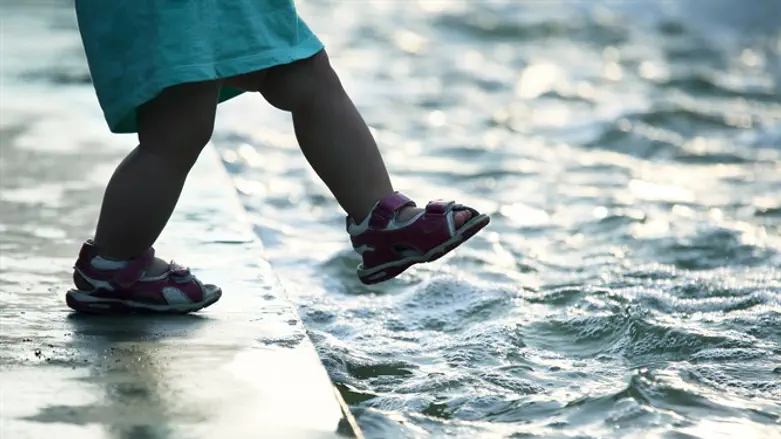
Parents of two children who drowned or nearly drowned in swimming pools spoke Tuesday morning to 103FM Radio's Ayala Hasson.
Dora Kuzak, who lost her 3-year-old son Yehonatan a year and a half ago when he escaped to a pool at a family wedding, spoke about the enormous loss: "Yehonatan was our youngest child, born when we were already older. He loves water. It's hard for me to talk about him in past tense."
Yoram Cohen, whose 11-year-old son Ram nearly drowned over the weekend, said: "His condition is improving. It was a miracle that the ambulance arrived so quickly."
Ram is still hospitalized.
Dr. Ori Balla, who runs Kaplan Medical Center's pediatric emergency room, said Ram "arrived after very good treatment in the field. Right now he is still on a respirator and in the intensive care unit. We are planning to wake him up, and we see good signs."
He also warned, "In the past few years we've seen more and more incidents of drownings in home pools...in the past we saw more drownings in public pools, or in the sea. Today we see more drownings in home pools. And what needs to be done is to appoint a lifeguard. Just like there's a lifeguard at a public pool, there needs to be a lifeguard at home. Someone who understands that when the children are there - no matter what age - he supervises."
"And that's what makes the difference. Because a difference of two, three, four, minutes is the difference between a child who's completely fine, a child who has some complications, and a child is injured and unconscious."
"Don't take your eyes off [your children]," Hasson summarized. "But who thinks to supervise an 11-year-old in the family's plastic pool, even if it's huge?"
"Yes, but it's the same as what happens in a regular pool. In a regular public pool, there's someone whose job it is to watch. A lifeguard," Dr. Balla emphasized.
"And remember that all the various floating devices, in our heads they protect the children. But in certain situations they don't protect children. If a child turns upside down with a floating ring, it's going to be very hard for him to turn rightside-up again. It's not a safety device, it's not a suit that protects children."
Kuzak, who donated her son's organs to other children, said she eats herself up "every day, every second, every minute."
Hasson concluded: "Parents, be careful, in one second life gets mixed up, and everything that was happy before turns into something entirely different."